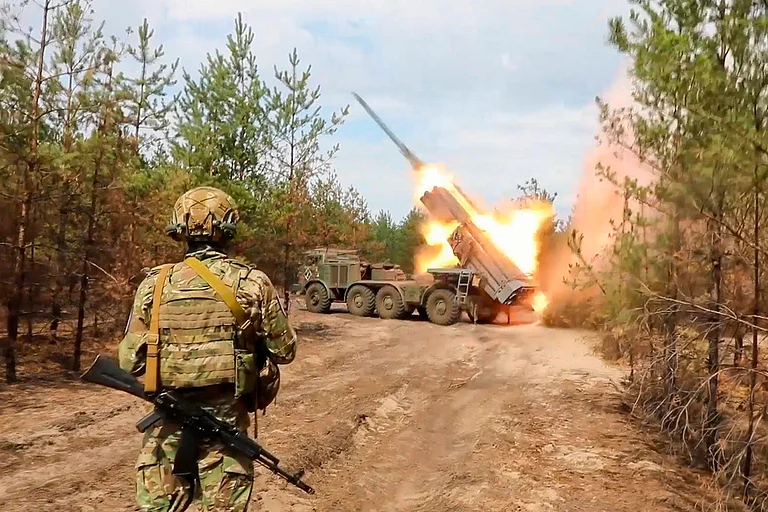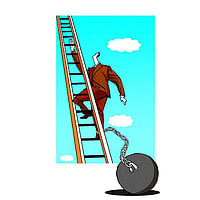Why was the Indian Mujahideen (or IM), which is suspected to be the terrorist organisation behind a spate of blasts, formed? Congressman Shakeel Ahmed says it was to avenge the 2002 anti-Muslim riots in Gujarat. He quoted the National Investigation Agency as saying that the IM was formed “after ultra-radicalised Muslim youth segregated from the Student Islamic Movement of India due to communal mobilisation caused by factors like the 2002 riots in Gujarat after the Godhra train-burning incident and the Babri Masjid demolition”. Ahmed then said, “Even now the BJP and the RSS will not desist from their communal politics?”
Responding, Ram Madhav of the RSS said, “Shakeel Ahmed is acting like an IM spokesperson. Terrorism flourishes in India courtesy apologists like Ahmed.”
Arun Jaitley, the Leader of Opposition in the Rajya Sabha, said, “The Congress spokesman has sought to rewrite history. His effort is to paint the IM as an organisation of aggrieved victims of the Gujarat riots. He ignores the international context and Pakistan’s strategy behind the creation of IM. This is yet another desperate attempt to communalise an issue of national security.” The Congress, of course, disowned Ahmed’s remarks. “It is not the party line as of now,” said Renuka Choudhary. Rahul Gandhi said Congress spokesmen should know their limits; Sonia Gandhi, too, had a word with Ahmed.
Muslim bodies took another perspective. Dr S.Q.R. Ilyas, of the All-India Muslim Personal Law Board, said, “The IM is a fabrication of the Intelligence Bureau. In the name of terrorism, the UPA, and the NDA before it, have been targeting a community and playing with our country’s security.”
Dr Zafar-ul-Islam Khan, president of the All-India Muslim Majlis-e-Mushawarat, said Muslims had nothing to do with the IM; it was floated either by the IB or Pakistan’s ISI.
These are opinions. Let’s look at the facts:
- On September 23, 2002, seven months after the Gujarat riots, the Akshardham temple in Ahmedabad, built by the Patel-dominated Swaminarayan sect, was attacked and 32 Gujaratis were killed. Six men were convicted, among them Mohammed Saleem Shaikh, a resident of Ahmedabad’s Kalupur area. None of the men had a criminal record.
- On December 6, 2002, a bomb went off on a bus in Ghatkopar, a Gujarati suburb of north Mumbai, killing two people. Eight Muslim men arrested for the attack, including Dr Abdul Mateen, were acquitted by a court in 2005.
- On January 28, 2003, a bomb exploded outside a shopping centre in Vile Parle, a Gujarati suburb of north Mumbai. On June 2, the police arrested three men for this attack, including Dr Wahid Ansari.
- On March 13, 2003, a bomb went off on a train in Mulund, a Gujarati suburb of north Mumbai, killing 11 people.
- On July 28, 2003, a bomb went off again in a Ghatkopar bus, killing four people.
- On August 25, 2003, bombs in two taxis exploded in south Mumbai, killing over 50 people. One of the blasts was in Zaveri Bazaar, where the jewellers are mostly Gujaratis. The couple held for the attack said in their confession they had vowed to teach Gujaratis a lesson.
- On July 11, 2006, blasts in seven compartments of local trains killed over 200 people. IM founder Sadiq Sheikh was arrested and confessed to organising the blasts to retaliate for the Gujarat riots.
- On July 26, 2008, 21 bombs went off in Ahmedabad, killing 56 people (pictured alongside). An e-mail had been sent to news organisations minutes before the blast, saying the IM was going to strike. Chief minister Narendra Modi said the bombings were masterminded by a group or groups using similar modus operandi across the country.
- On July 13, 2011, bombs went off in the Gujarati areas of Zaveri Bazaar and Opera House, and the Kabutarkhana in Dadar, built by Gujarati Jains. The IM was suspected; again, Gujarat was the cause.
There is no denying it. Many Indian Muslims have been radicalised by the events of Gujarat. India has had riots before, of course, but when a minister is convicted of killing 95 people and the chief minister offers no comment or condemnation of her actions, we must expect there will be a reaction. The BJP can’t have its ministers rioting and then disowning the consequences. Blasts have indeed occurred across the country, but what Modi’s assessment ignores is that Gujaratis have been targeted time and again.
Convicting those involved in the Akshardham case, the men who had no previous record, the Gujarat High Court said, “Their act was not to take revenge but to create terror in the minds of the people.” This is difficult to swallow.

























